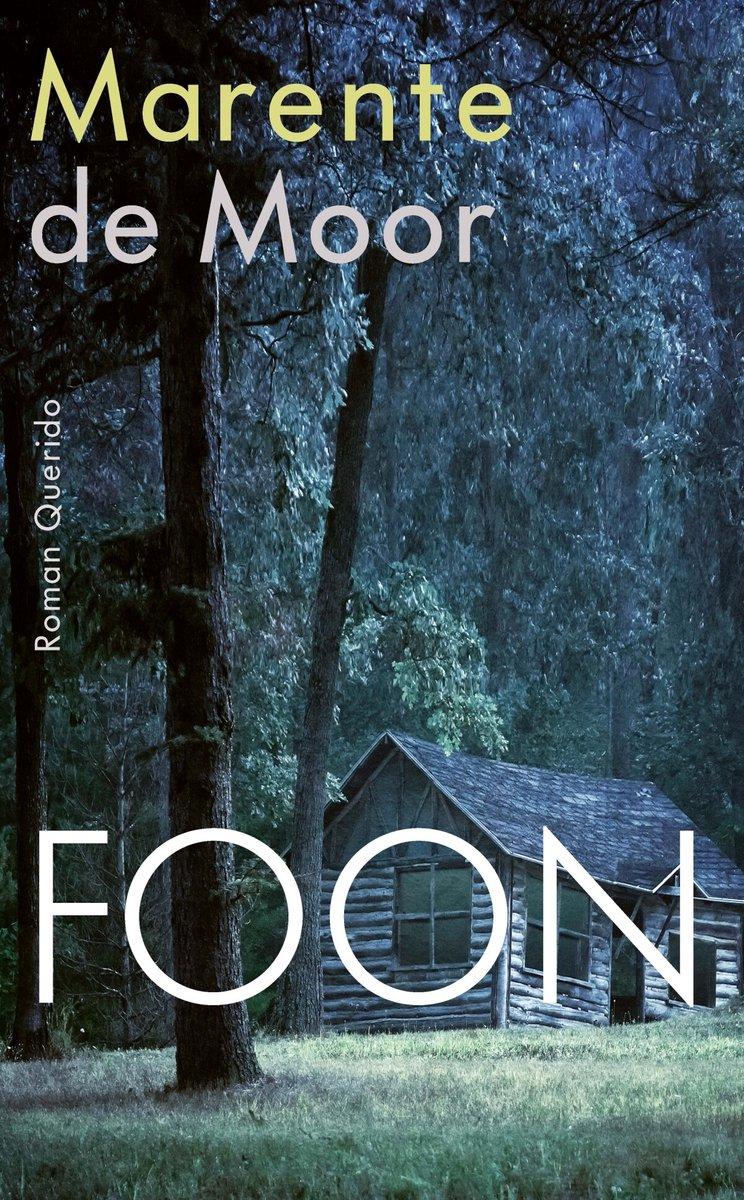Phon
Marente de Moor understands the art of storytelling like no other. In this dark psychological novel she explores the power of the imagination and gradually unearths the secrets buried deep in the memory of her protagonist, Nadja. As a young lab analyst, Nadja set off into the forests of Russia with her scientist husband, but now, in old age, the full extent of the loneliness that connects her to nature is making itself felt. It is a void she will fill with love and with stories.

Nadja longs for peace and stillness, for the company of the animals that roam the vast, deserted forests. The laboratory is standing empty, so too the old factory. Her husband Lev — a man who never feared anything — is now troubled by a mysterious sound heard only at night. He takes this as a sign that they must leave the forest but Nadja sees things differently. ‘It’s just the way things sound, a melancholy not found in any other country, because we have railways without end and a winter that refuses to yield and a bunch of other circumstances to make you howl and rust.’
The electricity has been cut off, the tap spouts water only intermittently, but Nadja remains undaunted. People disappear and she reckons that people have that right. Yet still the doubts creep in: am I the witch who has driven everyone away?
Memories from a year she would rather forget begin to surface, but Nadja spins her yarns and continues to believe in her own choices. Everyone filters the tales they want to tell, everyone has their own story: whether it’s the threat of the bear, the all-conquering strength of a mother, or Flight MH17 being blown out of the skies above Ukraine.
Fear has to be warded off with words but when one day the great sound is heard no more, Nadja misses it. ‘It’s not the explanation I miss, it’s the riddle.’ Her children accuse her of walking away from problems. Her son Dimka stirs up a disastrous episode with the Dutch woman who once seduced Lev and turned her daughter Vera against her. But nothing and no one is about to deprive Nadja of her love for her husband, the natural world and the stories she feels compelled to tell.
De Moor displays a profound understanding and love of life in Russia, not least the ‘dreams and imaginings of the common man.’ As in her earlier work, the sheer joy of storytelling leaps from every page. Phon is a brooding yet salutary novel in the tradition of the Russian masters: vast emptiness, long nights of bitter cold, a deep connection with the animal world and countless glasses of vodka combine to make this an enigmatic and turbulent page-turner.
Oh, those sentences of hers! They brilliantly conjure up the woodlands of Russia, as empty and forbidding as they are gloriously wild.
NRC Handelsblad
Until you discover the truth behind it all, 'Phon' is quite simply unputdownable.
de Volkskrant
